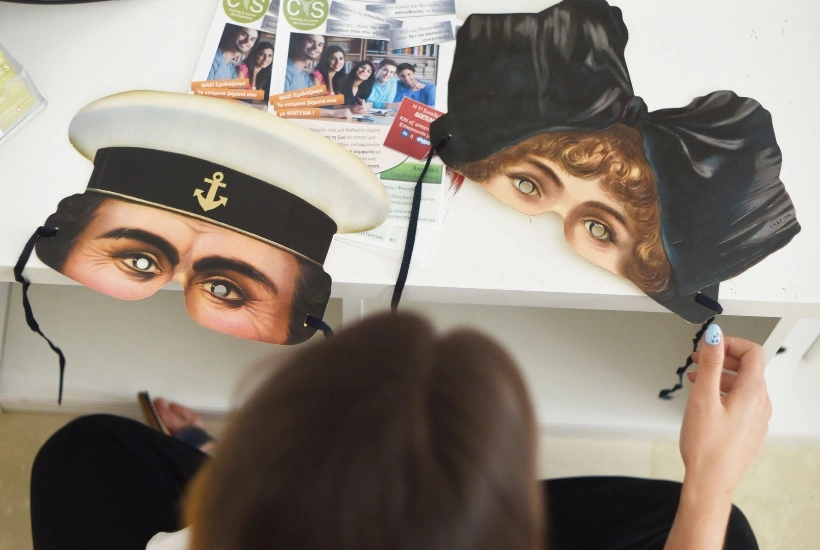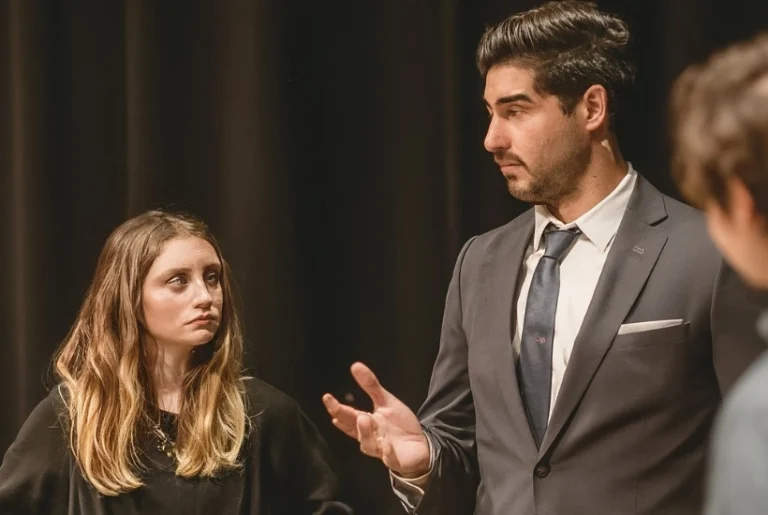In today's reality, young people are called upon to make serious decisions about their future without, in most cases, having essential tools of self-awareness or social understanding. Greek schools - and the education system in general - have limited means to help them understand both themselves and the world around them. However, through examples of theatre interventions in Greece and abroad, we see that theatre can become not only a tool for education, but also a lever for change.
From knowledge of the laws to empathy
In the article Teaching Adolescents Civil Law: Process Drama as a Tool for Achieving Legal Literacy, presents an innovative educational intervention in Argolida, where students of EPALs were taught basic concepts of Civil Law through the process of "process drama". The students took on the roles of citizens, lawyers or even legislators, living stories where moral and legal boundaries clash.
The result? Young people have gained an in-depth understanding of terms that would otherwise remain theoretical: what does "abuse of rights" mean? How is law separated from morality? Yet this understanding is not merely cognitive. It cultivates empathy, the ability to think critically and - finally - the political consciousness.
Freire, Jamaica and social change through theatre
Anne Hickling-Hudson in her article Striving for a Better World, presents Paulo Freire's influence on education through examples from Grenada, Jamaica and Australia. Particular emphasis is placed on the work of Area Youth Foundation in Jamaica, where young people from poor neighbourhoods created plays based on their own experiences. The creative process was a journey of awareness: through the roles, they came to a better understanding of their social position and their potential for change.
This is not just "theatre". This is a pedagogy of liberation, a call for young people to take a role not only in the project but also in society.
Applied Theatre in Greece in Crisis
Similarly in Greece there have been examples of applied theatre, especially during the period of economic crisis (Applied Theatre in Greece: Skipping from Crisis to Crisis). Performances in prisons, actions in hospitals, collaborations with refugee communities and elderly people were not just of cultural or entertainment value. They were social intervention operations, creating spaces for expression and dialogue for those who are rarely heard.
Of particular interest are the actions with adolescents and young people who experienced the uncertainty of the crisis and the lack of perspective. The theatre acted as a mirror but also as a window: recognition of the self, but also visibility to alternative life paths.
Theatre as a career rehearsal
The word "career" is often associated with occupations, CVs and skills. However, if careers are the way we "take our place" in the world, then we need and reflection, imagination, self-expression and role-playing. That is... theatre.
Theatre, especially in its applied forms (process drama, Theatre of the Oppressed, drama in education), offers something that is missing from the vocational orientation of schools: the experience. Young people can "try out" roles - social, professional, existential - without risk but with substantial experience.
Through this experiential experiment, skills such as:
- cooperation and listening,
- the management of emotions and crises,
- self-action and responsibility,
- empathy and political thinking.
All of these, not just as "soft skills", but as essential ingredients for a meaningful and directional life.
Closing
At a time when careers seem more like a struggle for survival than a path to self-actualization, theatre can give young people a tool not only to "become something", but first and foremost to understand who they are. When Freire's pedagogy, the drama in education and social action are united, then the school ceases to be just an institution and becomes change scene.
If you are interested in integrating theatre as a tool for personal and professional development in activities with young people, contact us to co-design an experiential programme, a workshop or a presentation in your educational or social community.
👉[Contact / Participation Form]
Bibliography
Gkerlektsi, T., & Dimaki-Zora, M. (2021). Applied theatre in Greece: skipping from crisis to crisis. Journal of Literary Education, (5), 144-156. https://doi.org/10.7203/JLE.5.21537
Hickling-Hudson, A. (2014). Striving for a better world: Lessons from Freire in Grenada, Jamaica and AustraliaInternational Review of Education, 60(4), 523-543. https://doi.org/10.1007/s11159-014-9434-0
Laskarides, A., Kontoyianni, A., Tsiaras, A., & Zoniou, C. (2019). Teaching adolescents civil law: Process drama as a tool for achieving legal literacy. Yaratıcı Drama Dergisi, 14(1), 243-260. https://doi.org/10.21612/yader.2019.014

